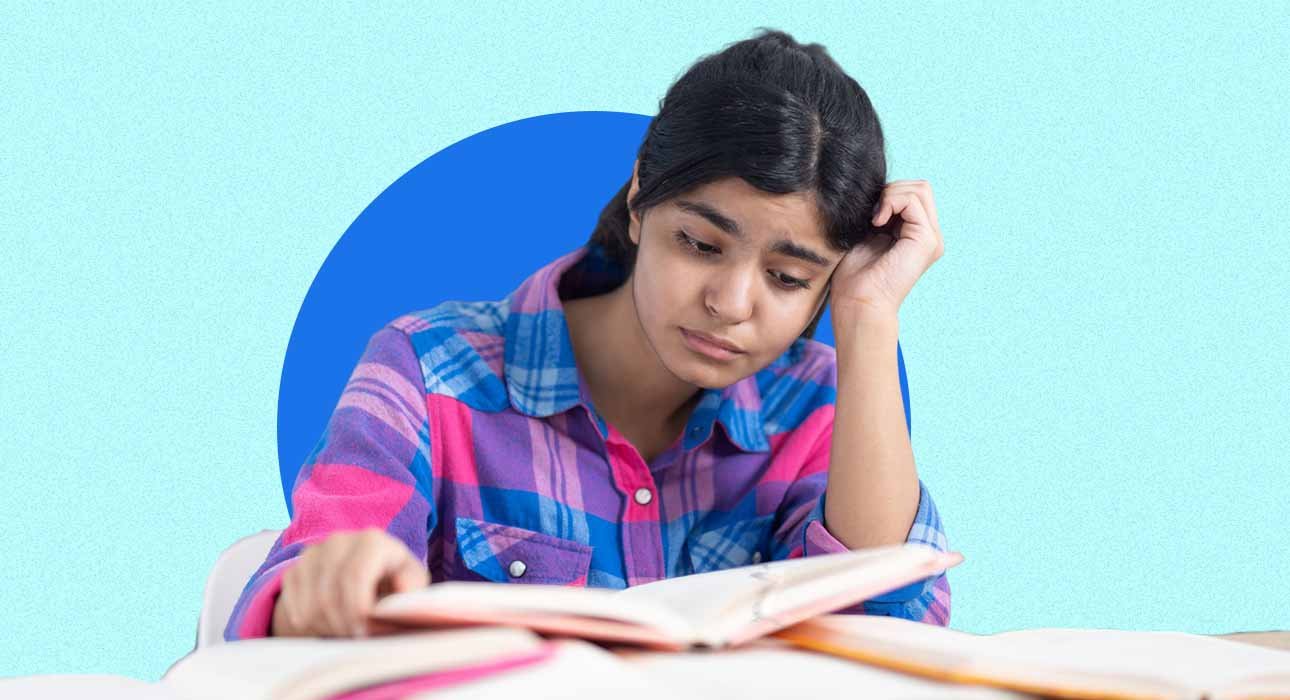Consider a student, slouched over stacks of textbooks late at night, their bloodshot eyes, their mind spinning. The pressure of a looming examination, a coveted ranking, presses down, overwhelming all else in their life. It is no singular occurrence; it is a common reality for immense groups of youth living within the high-pressure halls of contemporary education. The relentless pursuit of academic success, often measured only in terms of scores and rankings, casts a long shadow over their psychological welfare. This essay explores the profound psychological consequences of this high level of academic competition, its causes and manifestations, as well as potential interventions.
Read More: Academic Pressure and Its Effect on The Mental Health of Students
Introduction to Academic Competition and Mental Health
The modern education scene is widely afflicted by academic competition, a crushing force that leaves its lasting impression on students’ lives and general well-being. Worldwide, especially in extremely stressful scholastic settings, students are put through the pressure of attaining outstanding grades and rankings. This fierce competition is the only all-consuming endeavour for guaranteeing bright futures. This level of competition is so intense that it creates a culture where academic success will usually come before individual success, bolstered by pervasive social pressures and rigid peer criticism.

This pressure to succeed is suffocatingly heavy-handed, tending to push students to invest excessive amounts of money and time into their studies, too often at the cost of their health. As literary work reminds us, this kind of dynamic preferred academic involvement and thus raised the college students’ stress and anxiety levels (Ni et al., 2024). In this stressful environment, “scores” are the very precise quantitative figures obtained from assignments and exams, whereas “ranks” are relative performance among friends, heightening pressure and raising rivalry as a whole.
Additionally, “mental health” refers to the emotional, psychological, and social well-being of an individual that influences their thoughts, feelings, and behaviour. Studies have concluded that greater emphasis on competitive tutoring may have negative impacts on mental health, regardless of any educational benefit in the short term (Qian Zhang, 2023). Accordingly, the complex meaning of competition at school towards students’ mental well-being is pivotal in formulating powerful strategies against overpressure and a balanced, sustainable path towards academic achievement.
Read More: How To Deal With The Stress of Competition
Psychological Theories Related to Academic Pressure
The competitive school environment has far-reaching effects on students’ mental well-being. Different psychological theories provide intriguing observations on the complex interplay between student health and academic pressure. Consider, for example, the difference between intrinsic motivation, which is based on inherent pleasure and personal interest, and extrinsic motivation, which is based on external reward like grades or praise. Students who are mostly intrinsically motivated enjoy better mental health than students who are mostly extrinsically reliant (Gao, 2023). This dichotomy is based on an inherent conflict in instructional styles.
1. Maslow, Self-Determination, and Motivation
Maslow’s Hierarchy of Needs offers a helpful perspective, suggesting that fundamental needs like safety and belonging need to be satisfied before the pursuit of higher goals like self-esteem and self-actualisation. In highly competitive academic environments, the constant striving for good grades can all too often neglect these fundamental needs, contributing to increased stress and lower self-esteem. Self-Determination Theory further emphasises that autonomy, competence, and relatedness (connection) are needed for optimal psychological growth. Competitive learning environments can unknowingly undermine these fundamental components, flooding students with outside expectations and control (Liu et al., 2023).
When children are constantly compared with peers through ranks, their self-worth often becomes tied to numbers rather than their true abilities. Over time, this can damage self-esteem and create an identity centred only around performance. They stop realising and start believing what is being told to them. Instead of discovering who they are, children begin to believe they are only ‘as good as their rank.’ This not only leads to anxiety and loss of motivation but also narrows their sense of identity during crucial years of growth.
According to Clinical and Child Psychologist Vini Jhariya, Constant comparison through ranks and scores can have a deep psychological impact on children. When a child is repeatedly told where they “stand” against their peers, their sense of worth often gets tied to numbers rather than to their unique qualities or efforts. Over time, this can erode self-esteem, as many begin to feel that no matter how hard they try, they will always be “less than” someone else. They begin noticing and comparing everything in their surroundings.
In terms of identity development, adolescence is a period when children are forming ideas of who they are and what makes them valuable. If their identity becomes equated with academic rank alone, they may internalise labels such as “average,” “failure,” or even “only worthy when on top.” This narrow definition of self can lead to anxiety, perfectionism, withdrawal from learning, and in some cases, loss of motivation altogether. I often meet students who are bright and creative, yet feel “invisible” because their gifts don’t translate into high marks.
Healthy competition can encourage growth, but constant peer-based ranking reduces learning to a race rather than a journey. What children need instead is an environment where effort, improvement, and diverse talents are celebrated. When parents and schools shift focus from comparison to personal progress, children are more likely to build a healthy self-image, resilient self-esteem, and a balanced sense of identity.
2. Coping, Stress, and Mental Well-being
Coping and stress also provide essential accounts of how students manage academic stress. Lazarus and Folkman’s Transactional Model postulates that stress emerges not only from the challenge but also from students’ appraisal of such challenges; perceiving competition as an existential threat has the potential to greatly increase anxiety and burnout potential (Gao, 2023). Also, Selye’s General Adaptation Syndrome (GAS) describes a physiological stress response that, in the chronic condition of academic stress, can lead to a state of exhaustion affecting physical and mental health significantly. Reviewing these theoretical models assists in delineating the various factors responsible for mental illness due to academic competition and thus assists teachers and policymakers in learning to combat these widespread problems in the best way.
Ranks and Scores’ Impact on Mental Health
This never-ending race for scores and ranks leaves a permanent impact on mental health with both short-term and long-term effects. There is just too much stress and widespread burnout among the majority of students in the highly competitive scenario. The research repeatedly reveals a positive correlation between academic stress and the level of anxiety, whereby more than half of university students experience elevated anxiety levels (Ni et al., 2024). Case studies have also identified acute burnout in high-performing students under mounting pressure, leading to chronic fatigue, emotional exhaustion, and reduced interest in academic activities (Qian Zhang, 2023). Long-term effects are equally alarming.

Consistent academic pressure has the potential to bring about serious issues of self-esteem, since students will tend to personalise their performance as a measure of personal worth. There is also evidence-based strong correlation between low self-esteem and academic pressure; individuals who are put in situations under high stakes will tend to feel inadequate even when their grades are remarkable (Sun et al., 2024). Alarming reports suggest that suicidal tendencies are prevalent among high-achieving students under stress, where most of them strongly identify with academic achievement (Gao, 2023).
Therefore, the negative effect of obsessiveness with scores and rankings themselves goes far beyond the level of immediate stress to present serious and long-lasting dangers to the mental well-being of students in the short term as well as the long term.
Read More: How To Overcome Low Self-Esteem?
Real Life Examples and Case Studies
School environments, specifically the extremely competitive Ivy League colleges of America, are good examples of how very high levels of competition can be harmful to mental health. They are compelled to endure overwhelming pressures to excel in academics as well as, concurrently, develop remarkable extracurricular profiles, thus establishing an oppressive environment of competition. Such a competitive environment clearly tends to increase levels of anxiety and depression, particularly among students who have difficulty constantly achieving such unrealistically high expectations (Posselt & Lipson, 2016, pages 1-5). Inadequacy and chronic burnout may result in loneliness and low self-esteem, which have a profound impact on student life. International education systems, though, are characterised by differential amounts of scholastic tension.
East Asian nations, such as China, are known to have rigorous academic expectations and an extremely heavy workload. Chinese students often experience heavy academic pressure owing to the massive homework loads and the high expectations from parents and teachers alike (Jiang et al., 2021). This highly competitive setting is linked directly with higher mental health issues, like depression and anxiety, where the majority of Chinese teenagers express symptoms in direct correlation with studying pressure (Ni et al., 2024). J. Dain Jung’s study on single sex education indicates that competitive pressures affect mental health in two distinct ways in the two sexes (Jung et al., 2024, pages 6-10).
Male students, although sometimes they are higher in cognitive ability, might also have higher risks for negative mental health consequences, such as higher stress and burnout. Female students, on the other hand, have certain issues with competitiveness and peer interaction, which can come in the form of higher anxiety and self-esteem issues. These varied results highlight the need for interventions specific to the unique mental health effects of academic competition by demographic group and educational setting.
Interventions at Different Levels
Schools must introduce structural interventions to effectively address the widespread mental health effects of academic competition and bring about significant policy changes. Schools and colleges must address mental well-being by adopting policies that actively minimise unnecessary academic pressures, including limiting homework requirements and reconsidering the severity of grading standards. Gao (2023) highlights that wisely limiting extracurricular activities can drastically reduce student burnout levels.
Inclusive mental health programs must consist of easily accessible counselling services and incorporate social-emotional learning in foundational curricula, ensuring all-around development. Institutions can also create strong systems of peer support through which students exchange experience and coping mechanisms and consequently generate solidarity and mutual empathy.

Resilience-building workshops and good coping strategies are necessary to enable students to endure and even flourish in competitive settings, as discussed in (Posselt & Lipson, 2016, pages 11-15). Furthermore, schools must actively encourage the availability of mental health services so that each student knows what is available and feels comfortable in using it. On a personal level, students can control stress and anxiety by using mindfulness activities, practising effective time management skills, and establishing effective lifestyle habits.
Nursing.osu.edu (2025) underscores the significance of healthy practices for stress management through relaxation. Educating students with the skills to manage helping situations stigmatisation-free is central to enhancing resource use (crowncounseling.com, 2024). Combined, these coordinated interventions can establish a healthy campus culture supportive of success as well as mental health.
Read More: The Role of Resilience Programs in Schools
Conclusion
The psychological consequences of academic competition are daunting challenges requiring an all-embracing view of academic success. Empirical research has consistently depicted that increased academic pressures might have severe mental problems, including depression and anxiety, in students (Sun et al., 2024; Ni et al., 2024). These pervasive overcompetitions magnify mental exhaustion and represent a concrete threat to emotional well-being (Ni et al., 2024). There exists a certain and undeniable correlation between the education-induced stress and unhealthy mental outcomes in adolescents, underlining the need to address the demands of mental health along with academic success (Steare et al., 2023).
To effectively address such crucial issues, all concerned parties must embrace composite and plural interventions at individual, institutional, and policy levels. Schools must carefully craft a curriculum that aims for holistic development. Emotional strength, proactively incorporating mental health education to sensitise students. Moreover, creating supportive spaces where students are given the freedom to discuss their issues freely will do much to counteract the adverse effects of competition.
FAQs
1. What is the primary concern regarding academic competition in modern education?
The intense focus on scores and rankings severely impacts students’ psychological well-being, causing stress. Anxiety while prioritising academic achievement over personal health.
2. How do psychological theories explain the effects of academic pressure?
Theories like Maslow’s Hierarchy of Needs and Self-Determination Theory show how pressure neglects fundamental needs and undermines autonomy. Intrinsic motivation is healthier, and perceiving competition as a threat increases stress.
3. What are the short-term and long-term mental health impacts of focusing on scores and ranks?
Short-term, it causes high stress and burnout, with many students experiencing anxiety. Long-term, it can lead to severe self-esteem issues and, alarmingly, suicidal tendencies among high-achievers.
4. Can you provide real-life examples of academic competition’s impact on mental health?
Ivy League colleges show increased anxiety. East Asian nations like China link rigorous expectations to higher mental health issues, with gender-specific effects.
5. What interventions can help address the mental health challenges posed by academic competition?
Schools should limit homework, reconsider grading, and offer counselling and social-emotional learning. Resilience workshops, peer support, and promoting healthy coping mechanisms like mindfulness are also crucial.
References +
1. Jianchao Ni, Aichun Liu, Yanjin Shi, Jianpeng Guo. (2024). Impact of academic involution atmosphere on college students’ mental exhaustion: A chain mediation model. https://www.sciencedirect.com/science/article/abs/pii/S0883035524001605
2. Qian Zhang.Yayi Gao. (2023). Competition and game-playing: The academic returns and mental health costs of private tutoring – Qian Zhang, Yayi Gao, 2023.
https://journals.sagepub.com/doi/abs/10.1177/2057150X231165143
3. Mingyang Sun, Ming Piao, Zhaona Jia. (2024). The impact of alexithymia, anxiety, social pressure, and academic burnout on depression in Chinese university students: an analysis based on SEM – PubMed. https://pubmed.ncbi.nlm.nih.gov/39695783/
4. Gao. Xinhang. (2023). Frontiers | Academic stress and academic burnout in adolescents: a moderated mediating model.
https://www.frontiersin.org/journals/psychology/articles/10.3389/fpsyg.2023.1133706/ful
5. Zheng Liu, Yujin Xie, Zhuhong Sun, Di Liu, Hang Yin. (2023). Factors associated with academic burnout and its prevalence among university students: a cross-sectional study. https://pmc.ncbi.nlm.nih.gov/articles/PMC10163855/
6. Thomas Steare, Carolina Gutiérrez Muñoz, Alice Sullivan, Gemma Lewis. (2023). The association between academic pressure and adolescent mental health problems: A systematic review.
https://www.sciencedirect.com/science/article/pii/S0165032723008510
7. Dain Jung, Jun Hyung Kim, Do Won Kwak. (2024). Who Benefits from Single-Sex Schooling? Evidence on Mental Health, Peer Relationships, and Academic Achievements. https://docs.iza.org/dp17330.pdf
8. 30+ Eye-Opening Student Burnout Statistics That Demand Attention in 2024. (2024). https://crowncounseling.com/statistics/student-burnout/
9. Survey: Anxiety, depression, and burnout are rising as college students prepare to return to campus. (2025). https://nursing.osu.edu/news/2021/07/26/survey-anxiety-depression burnout-rising-college-students-prepare-return-campus
10. Julie R. Posselt, Sarah Ketchen Lipson. (2016). Competition, Anxiety, and Depression in the College Classroom: Variations by Student Identity and Field of Study. https://webapp.usc.edu/web/rossier/publications/219/Posselt%20Lipson_2016_JCSD.pdf
11. Shan Jiang, Qiang Ren, Chaoxin Jiang, Lin Wang. (2021). Academic stress and depression of Chinese adolescents in junior high schools: Moderated mediation model of school burnout and self-esteem. https://www.sciencedirect.com/science/article/abs/pii/S0165032721008909













Leave feedback about this